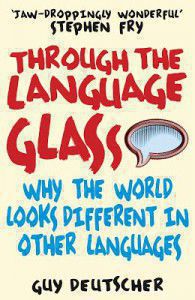Scire linguas: Why knowing your Latin can help your language skills
Thanks to London Translations for today’s blog post about the value of learning Latin!
Latin, a language that is more than 2,000 years old and is still spoken in the Vatican today, has shaped modern European languages like no other. Who would’ve thought that this medium of communication, which spread through the power of the Roman Empire, would influence language as we know it, speak it and understand it worldwide?
But why bother with learning Latin? If you don’t want to work in the Vatican, why should you learn a dead language? Surely you might as well focus on learning a modern language that actually helps you to communicate with other human beings, whether you’re travelling the world, writing emails or letters, or having business meetings with international clients.
However, despite being so old, Latin can give your language skills a real boost and help with a range of tasks, including consecutive interpreting. Why? Let’s take a closer look.
Better vocabulary
It’s a fact that almost 50 per cent of English vocabulary comes from Latin and 20 per cent from Greek. So if you know your Latin, you can derive an array of English words and improve your vocabulary in general. This applies to other European languages as well.
Better grammar
By getting to grips with Latin grammar, you can gain a better understanding of what grammar is about and how to apply that knowledge to other languages, making it easier to identify grammatical differences in a variety of languages.
Better learning of modern languages
If you know your Latin, it will be easy for you to apply your grammar and vocabulary skills to the modern Romance languages, such as Spanish, French, Portuguese and Italian. In fact, around 40 languages are connected to Latin. That is a big pool of knowledge.
Better performance in tests
People who know Latin generally outperform people who don’t in standardised tests. This may be because a language that has so many rules can help to shape logical thinking and cognitive skills in general.
Better foundation for different career paths
Knowing Latin and Greek can help to enhance your chances of succeeding in different career paths. In some professions, it is especially beneficial. Think of medicine, the law and philosophy.
As you can see, learning Latin has numerous advantages. It is not only a language for old, sophisticated men who sit in libraries all day. It is a language we should not forget and something that is well worth teaching future generations.
(In case you wondered what ‘scire linguas’ means, it translates as ‘learn languages’.)
If you’d like to try out a bit of Latin, you can find a free demo on our website.
Book review: Through the Language Glass
Ever wondered what us language geeks do for fun in our spare time? Reading books about languages, of course! Well, not all the time – but I recently read the very interesting Through the Language Glass by Guy Deutscher, and would recommend it to anyone else who is interested in how different languages work, and how our mother tongue affects our thoughts and behaviour.
 Through the Language Glass is all about the ongoing linguistic debate about whether our native language affects our perception and the way we think about the world around us. A large portion of the book is dedicated to a rather in-depth discussion about the differences between colour vocabulary in various languages. You might already know that Russian and Italian have two words for ‘blue’ (light and dark blue). But you might not know that the famous Greek writer Homer didn’t have any words for blue, and instead used mostly red and black to describe the scenes of the Iliad. This led to a long debate about whether people in the past lacked our modern ‘colour sense’ and saw the world in only a few shades. You’d probably have to be pretty dedicated to trying to understand the evolving debate on the development of linguistic terms for colours to plough through this rather long section, but it is rather interesting if you’ve got the patience.
Through the Language Glass is all about the ongoing linguistic debate about whether our native language affects our perception and the way we think about the world around us. A large portion of the book is dedicated to a rather in-depth discussion about the differences between colour vocabulary in various languages. You might already know that Russian and Italian have two words for ‘blue’ (light and dark blue). But you might not know that the famous Greek writer Homer didn’t have any words for blue, and instead used mostly red and black to describe the scenes of the Iliad. This led to a long debate about whether people in the past lacked our modern ‘colour sense’ and saw the world in only a few shades. You’d probably have to be pretty dedicated to trying to understand the evolving debate on the development of linguistic terms for colours to plough through this rather long section, but it is rather interesting if you’ve got the patience.
The rest of the book moves on to some interesting discussions of smaller tribal languages in Australia and elsewhere, and how their unique features either reflect the requirements of the society/location, or affect the behaviour of the speakers. For example, the Aboriginal language Guuguu Yimithirr has no words for left and right. Instead, speakers must develop an acute sense of North, South, East and West, as it’s impossible for them to say ‘the tree is on my left’ – instead they must say ‘the tree is North of me’. Experiments have shown that even if speakers of the language are driven to new locations blindfolded, they retain their incredible sense of direction and can still describe location based on the compass directions.
And how about grammatical gender? For us English speakers, referring to a table as ‘she’, as a Spanish speaker would (la mesa), or a girl as ‘it’, as a German would (das Maedchen), seems rather odd. But for most Europeans, using a blanket ‘it’ for everything doesn’t really feel right either. So what does this mean for all those speakers of languages with grammatical gender? Do they somehow see a table as girly and feminine, and a phone (el teléfono in Spanish) as macho and masculine? Well of course not… that would be silly! But there may be subtle ways in which these distinctions affect us. Think about how we can tell a story in English being vague about the gender of the person involved. Yesterday, I had dinner with my friend. Whether that friend is male or female is none of your business! But in Spanish, you’re rather forced to disclose that ‘la amiga’ was of course a girl.
We might find the idea of a ‘gender’ for inanimate objects strange and funny, but Deutscher traces this back to at least an original logical starting point. It might surprise you to know that there are many more genders in language, beyond the masculine, feminine and neutral genders you might already know. Some languages even have a ‘vegetable’ gender, which even includes things like aeroplanes. Why, you might ask? Well, it’s simple really. The ‘vegetable’ gender may have started off for only plants. This would have included wood, and anything made from wood, such as a boat, perhaps. It’s then not such a jump to having other vehicles in the same gender.
If any of this sounds intriguing and you’d like to know more, I recommend that you pick up Deutscher’s book. It’s not quite beach reading, but it’s accessibly written, not an academic tome that’s only for linguists. I can guarantee that you’ll learn something new about languages and maybe gain a different perspective on how your native language affects your perception.
Alex
Junior Language Challenge – the semi-finals!
Back in March, over 1,100 primary school children from around the UK joined our annual competition, the Junior Language Challenge, learning Italian online. Over the next three months, they scored points in the language games, and then in June the top scorers from each region of the country progressed to the second round.
Not wanting to make it too easy, for their next challenge we asked them to learn the notoriously tricky language of Japanese. Impossible, you might say – how can you expect children under 11 to learn such a difficult language?
As we discovered this week, it’s not impossible at all. Over the last ten days, we’ve been travelling around the country for the regional semi-finals, and have been seriously impressed with what we’ve seen. All the children had clearly worked really hard, and we had several very tense contests in the race to grab a place in the final. There were some familiar faces, and some first-time competitors, and everyone gave it their all. So on behalf of EuroTalk, thank you to all the teachers, parents and most importantly, the children for joining in so enthusiastically.
The competition also raised nearly £6,000 for a brilliant organisation called onebillion, who create apps to teach children in developing countries basic maths and reading, giving them valuable learning opportunities that we often take for granted here in the UK. onebillion were recently featured by BBC Click, and their report gives you a taster of the fantastic work they’re doing in Malawi.
But what about our finalists? They’re not finished yet. For their third and final language, they’ll be learning the African language of Somali, ready for the grand final in London next month, where they’ll compete for the title of Junior Language Challenge Champion 2014, and a family holiday to Africa.
We hope that everyone who’s taken part in the JLC this year, whether you’re continuing on to the final or not, really enjoyed it. Now you know that you can learn any language, even difficult ones, the sky’s the limit!
And to our finalists… see you next month 🙂
Are you a language geek?
We’re proud to be language geeks here at EuroTalk, but we know we’re not the only ones! Here’s your opportunity to show us what you know… Can you get 100%? And more importantly, can you beat your friends? 😉
(By the way, if you want to cheat on any of the questions, the words we’ve used in the quiz are in our uTalk app – now available in 100 languages on iPad, iPhone and iPod touch.)
How do you choose which language to learn?
Everyone’s always talking about how useful it is to speak another language – and they’re right, for so many reasons. There’s lots of advice too on how to get started and how to stay motivated when it gets tough. But the first question any aspiring language learner should ask themselves is, ‘Which language do I want to learn?’
Sometimes this is easy, because you’re moving to another country, or you’ve met a new partner who speaks a particular language. Even if this means you end up learning a language most people would consider unusual, to you it has a purpose and that makes it anything but obscure.
But what if you’ve just decided you want to learn a language, because you’ve heard that people with a second language earn more, or that learning a language makes you cleverer, and don’t have a particular one in mind?
 At EuroTalk, we offer nearly 140 different world languages. It’s a pretty daunting selection to be greeted with when you’ve just Googled ‘I want to learn a language’ and stumbled on to our homepage, or downloaded the uTalk app. And that doesn’t even come close to the total number of languages spoken in the world. So how is anyone meant to choose one to learn? Do you just close your eyes and point at one?
At EuroTalk, we offer nearly 140 different world languages. It’s a pretty daunting selection to be greeted with when you’ve just Googled ‘I want to learn a language’ and stumbled on to our homepage, or downloaded the uTalk app. And that doesn’t even come close to the total number of languages spoken in the world. So how is anyone meant to choose one to learn? Do you just close your eyes and point at one?
Well no, we don’t recommend that approach; you could end up with something really fun that way, but at the same time, learning a random language just for the sake of it, when there’s very little chance you’ll ever get a chance to speak it, seems a shame. Half the fun of learning a language is getting to share it with other people.
So here are our recommended criteria for choosing a language:
Number of speakers
Generally, a language with more speakers is going to be more useful to you, because you’re going to have more opportunities to speak it. According to Ethnologue, the top five most spoken languages in the world are Chinese, Spanish, English, Hindi and Arabic, with a total of 2.4 billion speakers between them, so knowing one of these languages is going to guarantee you lots of people to talk to.
On the other hand, it depends on your reasons for wanting to learn a language. If it’s to make friends all over the world, one of these five languages will stand you in good stead. But if it’s to improve your employment prospects, bear in mind that you might face more competition if you’ve chosen a popular language. I studied Spanish at university, which is in great demand with employers. But so did lots of other students. We’ve got five people who speak Spanish at EuroTalk – two of them are native speakers (there are less than twenty of us in total, to put that in context) so it’s rare for me to be called on to use my language skills. Something like Portuguese or Japanese, which are still in the top ten in Ethnologue’s list, might offer fewer opportunities but when one comes along, you’re probably not going to face as many rivals for the job.
Where it’s spoken
Another important factor. Firstly, you don’t want to learn a language that’s spoken in a country you never intend to go to, or in which you’ve no interest. Secondly, some languages, like French, Arabic or English, are spoken in many different countries. So if you’re going travelling and want a language you’ll be able to use in more than one place, one of these will be more useful to you. But if travel’s not top of your agenda, this might not be such a big consideration.
Similarity to other languages
Most world languages are organised in families, which means they come from the same root as the other languages in that family. This means often, although you may only speak one language, you can probably at least make yourself understood in another. Hindi and Urdu, for example, are mutually intelligible, as are Czech and Slovak. If you know Spanish, you can make a reasonably decent attempt at Portuguese or Italian, and although you might make a few mistakes, chances are you’ll be understood. I’m not suggesting you should go around speaking the wrong language at people, but if you do make an honest slip-up, or just can’t think of the right word, you’ll probably be ok. I’m fairly sure I spoke quite a bit of Spanish when I was in Italy earlier this year, but everyone seemed to understand what I was getting at.
Some languages, though, don’t have any close neighbours, or indeed any neighbours at all. Basque, for example, is what’s known as a language isolate, as is Korean. This means they don’t belong to a family, but stand alone, so if you’ve chosen one of these languages, it’s worth remembering that it won’t help you with any others.
Your interests
Partly, this is to do with your travel interests. If you’ve a particular interest in Russia, for example, we’d recommend you learn Russian. But even if you’re not particularly interested in travelling, there are other things to consider. Are you a fan of opera? Maybe give Italian a go. Anime? Japanese. Star Trek? Klingon.
Or maybe you’ve got a particular interest in endangered languages, in which case you might want to learn Cornish or Sardinian, not necessarily for the wealth of communication opportunities it offers, but to help save a valuable world language from extinction.
Your commitment
You know yourself better than anyone. How motivated do you feel? Is this just a passing whim that you’re likely to give up the moment it gets difficult, or are you prepared to stick at it? The fact is, some languages are harder than others, and this is different for everyone, depending on your native language. For Europeans, Dutch is considered quite an easy language to learn, while Mandarin Chinese is very difficult. But someone living in Japan may find Chinese much easier to learn than any European language.
So if you’re living in Europe and intending to learn Mandarin, you’ll need to be pretty dedicated. And if you know you don’t have it in you, it might be better to try something else rather than face disappointment when it doesn’t work out. Nobody’s bad at all languages – you just need to find the right one for you.
If you’re still undecided, and in need of some inspiration, take our quiz – it’s not at all scientific, but might give you some ideas!
Or even better, why not try a few out? You can do this for free on our website, or by downloading uTalk for iOS.
If you have any other tips or suggestions for readers trying to choose a language, please share them in the comments.
Liz










